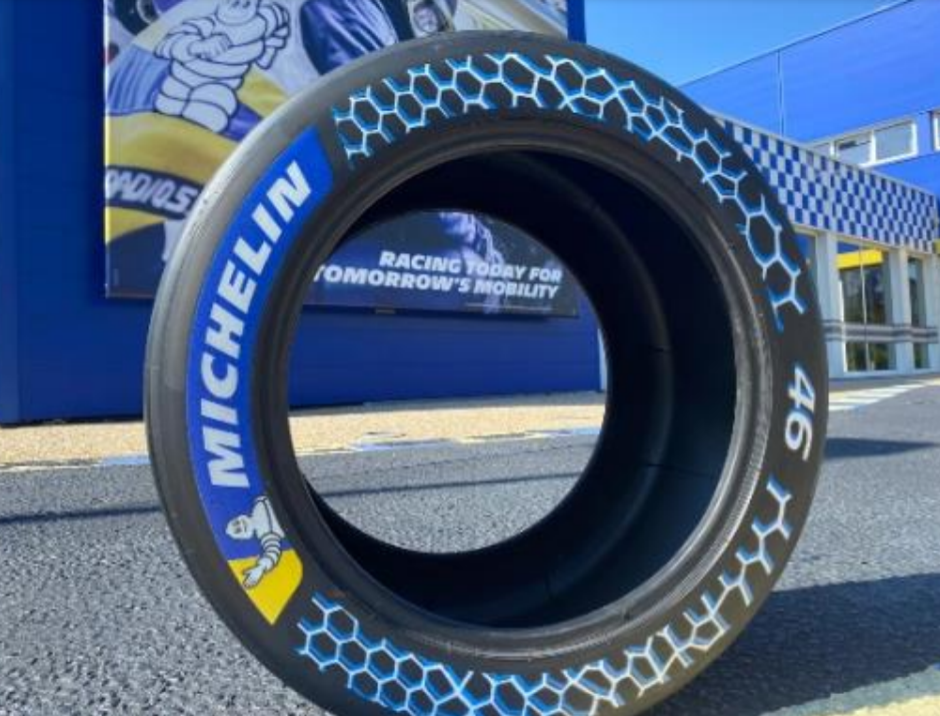At the Movin’On Event 2021 (a global sustainable mobility summit held every year), Michelin underscored its commitment to sustainability by unveiling a new racing tire made up of 46% sustainable materials.
It’s a significant first step toward the company’s aim of employing 100 percent sustainable materials in all of its tires by 2050, not just for competition.
The French company picked a racing tire over a standard road tire to demonstrate that it can produce a product that is both environmentally friendly and works well under the rigors of motorsports competition. Some of the materials the company is using include lemon rind, sunflower oil, and pine resin that are used alongside other recycled and sustainably sourced materials in the prototype.
The formula calls for more natural rubber (rather than synthetic) and reclaimed carbon black (a soot-like carbon particle often utilized in rubber products) from old tires.
Michelin has teamed up with the GreenGT team to deploy their Mission H24 hydrogen-powered endurance prototype as a test mule, allowing the business to conduct real-world research and development on the racetrack.
You can probably rest confident about placing a set on your street bike if the company’s engineers can design a durable tire that’s good enough for hot-lapping in extreme conditions at high speeds.
The tire manufacturer is quite committed to making Michelin tires greener in the future. In May, it partnered with Carbios, a French biochemistry company to help transform PET plastic waste into reinforcing tire fibers. Construction began in February to put up the first recycling plant. Michelin has also set a goal to achieve 40 percent sustainable materials by 2030 in all tires. This is an interim milestone before achieving 100 percent in 2050.
Michelin also utilized the Movin’On Summit to convey its ambitions to reduce the environmental impact of the complete tire production process, including raw materials, road use, and recycling, in order to emphasize its commitment to sustainability. The WISAMO project, an inflatable wing sail meant to cut carbon emissions in maritime commerce, was also exhibited.


